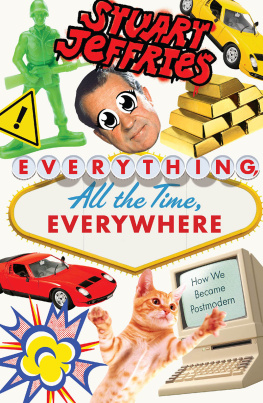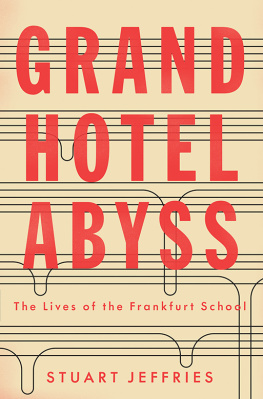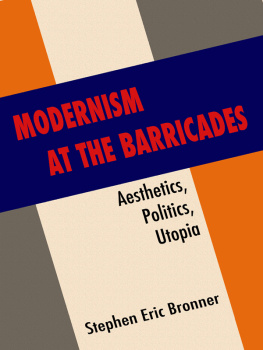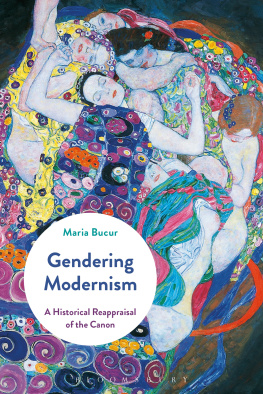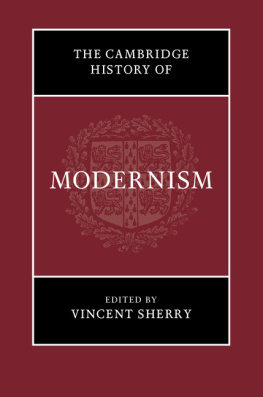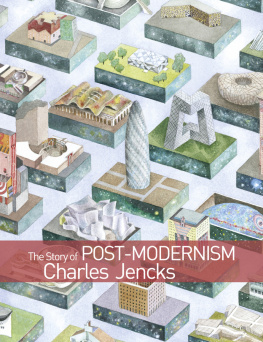Contents
Everything,
All the Time, Everywhere:
How We Became
Post-modern
Everything, All the Time,
Everywhere
How We Became Post-modern
Stuart Jeffries

First published by Verso 2021
Stuart Jeffries 2021
All rights reserved
The moral rights of the author have been asserted
1 3 5 7 9 10 8 6 4 2
Verso
UK: 6 Meard Street, London W1F 0EG
US: 20 Jay Street, Suite 1010, Brooklyn, NY 11201
versobooks.com
Verso is the imprint of New Left Books
ISBN-13: 978-1-78873-822-4
ISBN-13: 978-1-78873-825-5 (US EBK)
ISBN-13: 978-1-78873-824-8 (UK EBK)
British Library Cataloguing in Publication Data
A catalogue record for this book is available from the British Library
Library of Congress Cataloging-in-Publication Data
Names: Jeffries, Stuart, author.
Title: Everything, all the time, everywhere : how we became post-modern / Stuart Jeffries.
Description: London ; New York : Verso Books, 2021. | Includes bibliographical references and index. | Summary: Where modernism was serious, absorbed in grand narratives and committed to social progress, its successor was a riot of colour and irreverence, toying with forms and styles, committed to none of them and to nothing. But beneath its glitzy surface, post-modernism hid a dirty secret: it was the fig leaf for a rapacious new kind of capitalism, the bridgehead of the post-truth era in Western values Provided by publisher.
Identifiers: LCCN 2021029491 (print) | LCCN 2021029492 (ebook) | ISBN 9781788738224 | ISBN 9781788738255 (ebk)
Subjects: LCSH: Postmodernism.
Classification: LCC B831.2 .J44 2021 (print) | LCC B831.2 (ebook) | DDC 149/.97dc23
LC record available at https://lccn.loc.gov/2021029491
LC ebook record available at https://lccn.loc.gov/2021029492
Typeset in Sabon by Biblichor Ltd, Edinburgh
Printed and bound by CPI Group (UK) Ltd, Croydon CR0 4YY
Contents
I
In 1982, a puzzling message appeared in midtown Manhattan. Protect me from what I want, read huge LED lettering in Times Square. What was it selling? Why would anyone want to be protected from their own desires? Who would do the protecting? And who had made us desire what we should not? The person responsible for installing the sign, the artist Jenny Holzer, did not do answers.
She might have told you, though, that her sign was not advertising, it was art just not the kind of art you normally see in galleries. Holzer is perhaps best known for the slogans she put on T-shirts and baseball caps and even condoms in New York in the late seventies and early eighties. She also art bombed the street at night, putting up posters with texts culled from Karl Marx, Susan Sontag and Bertolt Brecht, and others of her own such as The desire to reproduce is a death wish and Romantic love was invented to manipulate women. I would sneak around the morning after Id pasted them up to see if anybody would stop, she recalled. Thats the test of street art to see if anybody stopped. People would cross out ones they didnt like and would start others. I liked that people would engage with them.
The desperate things seem to require attention, the lovely things seem to elicit celebration, she told me in 2012. If I had to choose, I would go to the awful in the hope that doing something could yield a happier result. Perhaps her hope was that, in taking art from gallery to street, she might indict a rampaging culture of consumerism and get her subversive message to new demographics.
The awful that Jenny Holzer gravitates towards is to do with how, in our post-modern era, the existential human tragedy of desire followed by disappointment followed by desire followed by disappointment has been exploited as never before. Holzer, possibly, was highlighting how that cycle of desire and disappointment helps keep capitalism in business: we need to be protected from being corrupted by desire in general, and by shopping in particular.
Her sign became a striking emblem of the new, post-modern world in which we live. It is a world in which we know that we are ensnared in a system we feel scarcely able to change. Indeed, it is one in which we are oppressing ourselves with the very things we desire.
Holzers piece invoked a different kind of 1984 from the one imagined in Orwells novel. Big Brother needed electroshock, sleep deprivation, solitary confinement, drugs and hectoring propaganda broadcasts to keep power, while his Ministry of Plenty ensured that consumer goods were lacking to ensure subjects were in an artificial state of need. In our deindustrialised, neoliberal era, such biopolitics is obsolete, argues Korean-German philosopher Byung-Chul Han. What capitalism realised was that it didnt need to be tough, but seductive. Instead of saying no, it says yes: instead of denying us with commandments, discipline and shortages, it seems to allow us to buy what we want when we want, become what we want, and realise our dream of freedom.
In this book I will argue that post-modernism originated under the star of neoliberalism, a global economic ideology whose heroes or devils, depending on your political persuasion, include Ronald Reagan, Margaret Thatcher, Deng Xiaoping and General Augusto Pinochet. It is an ideology that stands for liberating entrepreneurial acumen from the presumed dead hand of state intervention. Before neoliberalism got us in a chokehold, advanced industrial post-war states, especially in western Europe, had been committed to two things: the ladder and the safety net. The former gave the least fortunate the chance to rise; the latter caught them if they fell. Free education was part of the ladder, socialised medicine part of the safety net. Neoliberals such as Reagan and Thatcher kicked over the ladder and cut holes in the safety net. They shrunk the state to a humbler role. Its new task was to create a framework to defend and extend free trade, free markets and private property rights. Ameliorating poverty or creating equality of opportunity? The state could forget about such patronising nonsense.
Soon after neoliberalism was born, the world economy suffered economic recession. The 197374 recession and its successor in 197983 led to the collapse of the Fordist model of integrated industrial production. Instead, short-term contracts proliferated, work was outsourced from Walsall to Warsaw and still further east. The information age supplanted the manufacturing age, capital flowed more freely across the world, companies expanded globally. Your parents may have made worthwhile things for a living using now-obsolete skills, but you are more likely to work in a call centre for a loan-consolidation website.
In order that capitalism overcome recessionary crises, and indeed emerge stronger from them, neoliberalism required a populist, market-based culture of differentiated consumerism and individual libertarianism. As such it proved more than a little compatible with that cultural impulse called post- modernism which had long been waiting in the wings but could now emerge full-blown as a cultural and intellectual dominant, argued Marxist geographer David Harvey.
But what is post-modernism? As the name suggests, it came after modernism. Post-modernism is a movement that disdained the modernist vision. Its enthusiasts saw it as a giddy, fun, libidinous carnival after the communal prison, a riot of colour and quotation that replaced modernisms acres of brutalising concrete. But post-modernism is more than cultural handmaiden to neoliberalism, as Harvey envisaged it. It is a paradox. It is at the same time both alibi for and indictment of the neoliberal order. Worse yet, its very indictments can serve as alibis.

